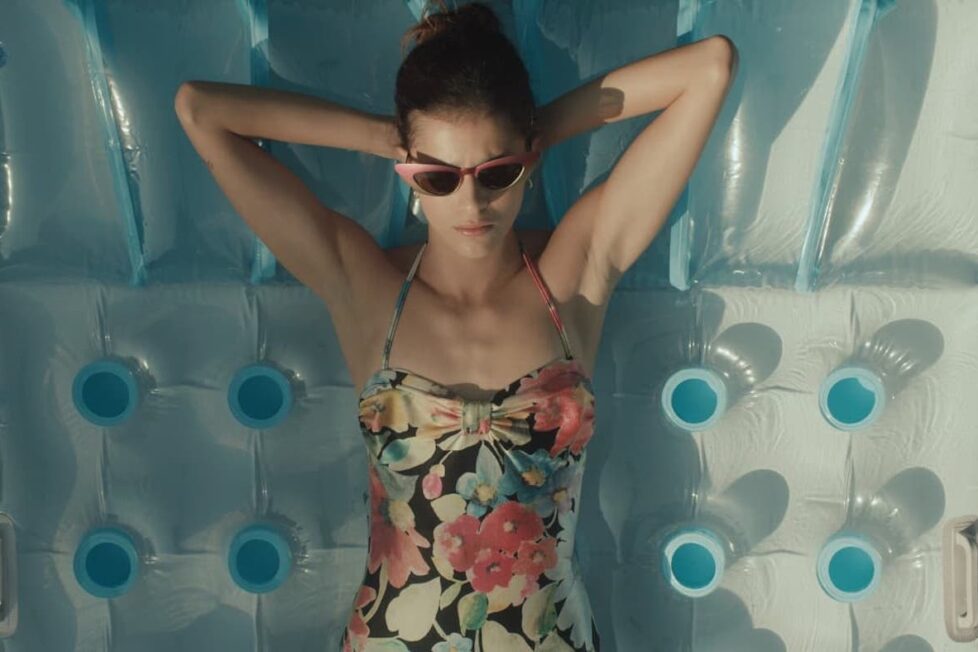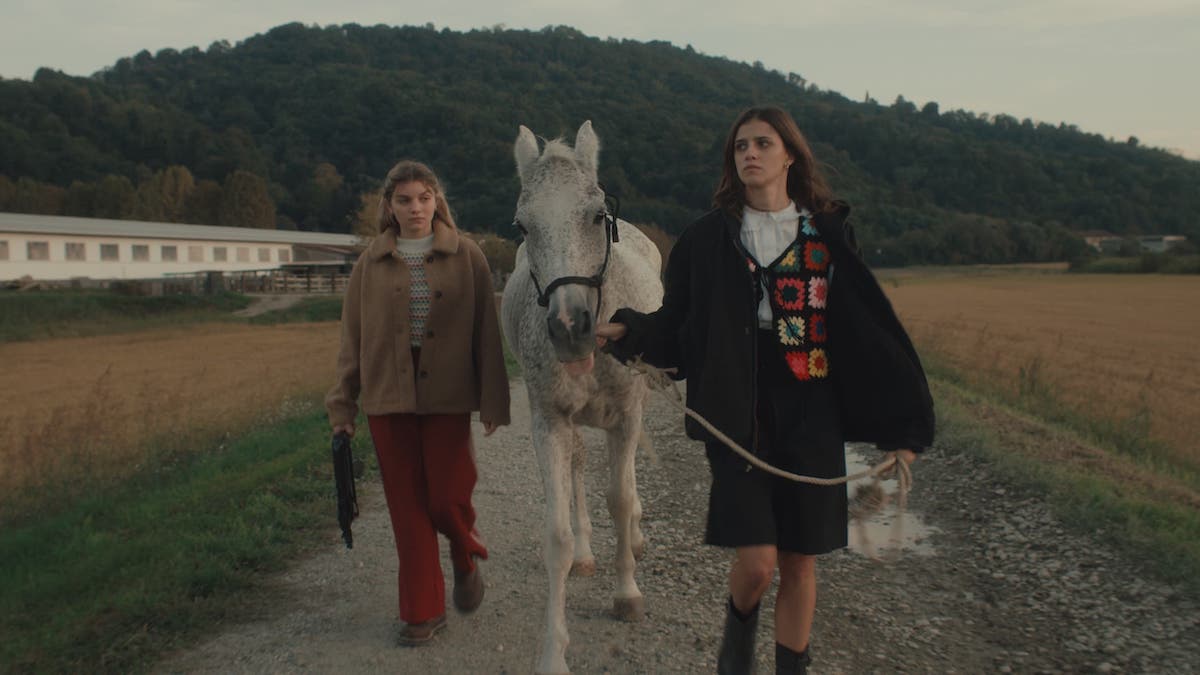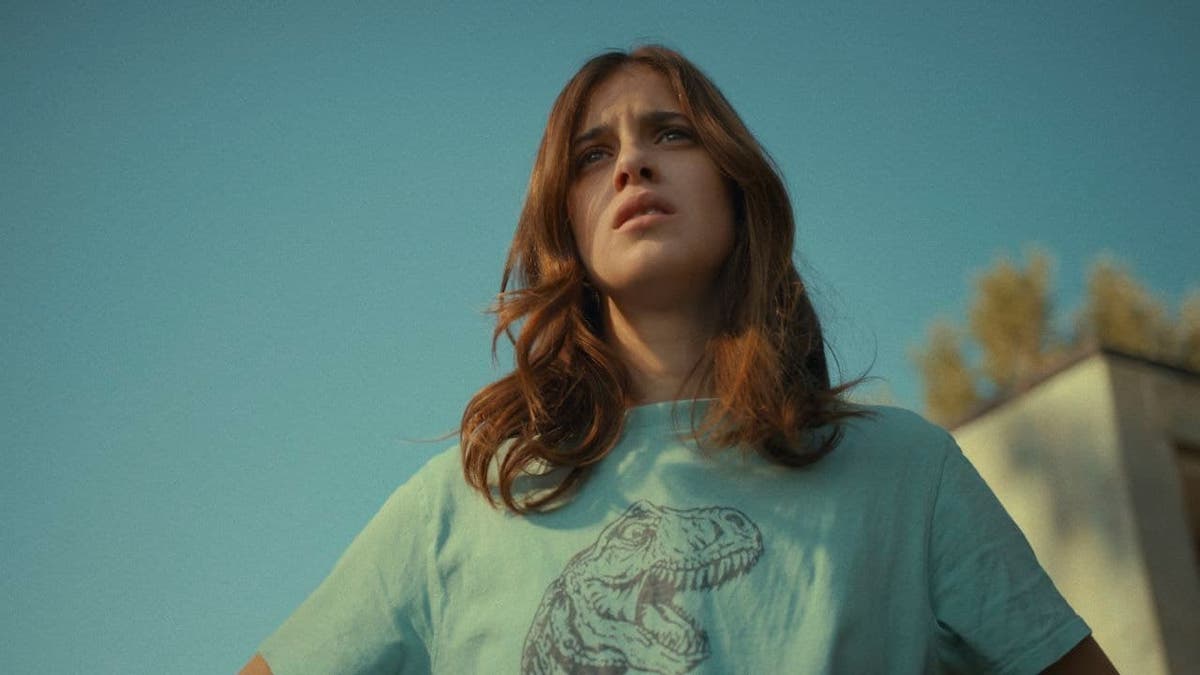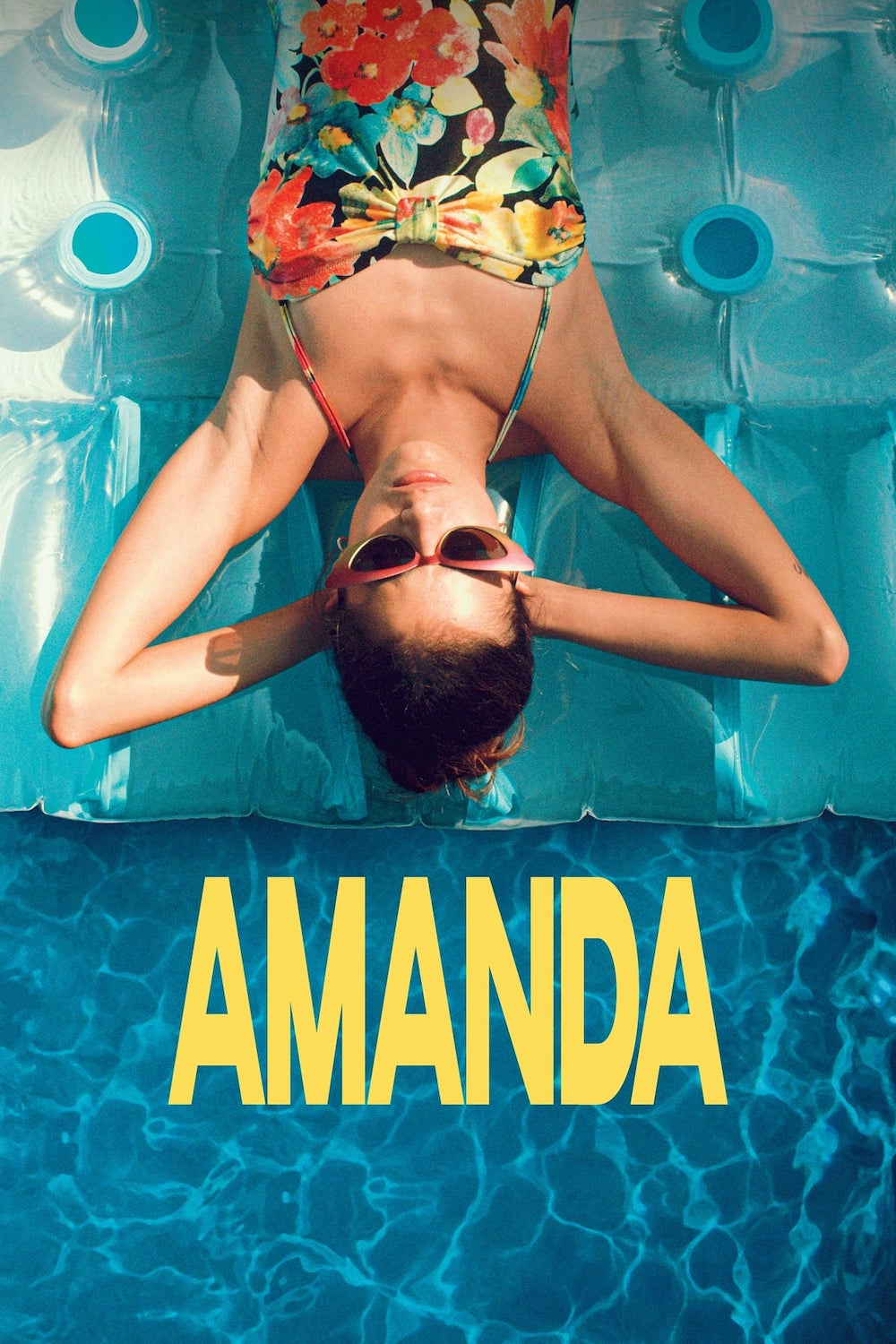AMANDA (2022)
An eccentric young woman from a wealthy family tries to persuade another woman to be her best friend.

An eccentric young woman from a wealthy family tries to persuade another woman to be her best friend.


The eponymous Amanda in Carolina Cavalli’s wittily-scripted, well-acted, and distinctively-directed feature debut might seem like the girl who has everything, but she feels some things are lacking in her pampered life—a bestie, a boyfriend—and sets out to acquire them.
Amanda (Benedetta Porcaroli) is 25, though we first see her as a young girl floating on a lilo in a swimming pool, in a scene the significance of which isn’t clear until the end. But she’s much less mature than most 25-year-olds, and also less mature than even she imagines; coming from a wealthy pharmacy family, Amanda doesn’t have to work and rejects the idea of joining the family business. She’s as aimless as Dustin Hoffman in The Graduate (1967), to whom Amanda’s two pool-floating scenes may refer.
Instead, Amanda idles around Paris and Turin, sometimes sullen, sometimes over-exuberant, nursing her own resentments carefully but also becoming wildly enthusiastic about the most trivial things, a trait which gives Amanda many touches of the absurd. She lurks outside raves (too insecure to enter, though she wouldn’t admit it), considers her nagging mother (Monica Nappo) and her sister Marina (Margherita Missoni) an almost unbearable burden, and has no one she’s really close to.

“I’m looking for a best friend,” she declares, and literally besieges her childhood pal Rebecca (Galatéa Bellugi), camping outside her room, paying little attention to Rebecca’s mental or emotional problems, and essentially demanding companionship. She also meets a boy (Michele Bravi) and decides he will be her boyfriend, though he doesn’t necessarily see it that way. In short, Amanda is entitled and annoying, but sad too.
Cavalli’s film doesn’t take the character too far in either direction. While it’s certainly not manipulating us into sympathising with her, nor is it harsh in its portrayal of Amanda’s more irritating aspects. We’re encouraged to see her for what she is, while also not losing sight of her humanity. The obnoxious are people too.
A certain distance is maintained through the often artificial-sounding language of Cavalli’s screenplay and some slightly surreal aspects to the storyline: Amanda’s unlikely obsession with an electric fan in a local store (which leads to her hilariously unexpected apotheosis), the equally unlikely introduction of a horse into the narrative and several characters’ lives, the role played by some firecrackers near the end.
This sense of distance is heightened, too, by the formal and stylised visuals from Cavalli and cinematographer Lorenzo Levrini. They favour symmetrical compositions with immobile people—for example, a shot of young men lined up outside a cinema, evenly spaced, but when Amanda walks down the road in slo-mo it’s right down the middle, with a squirrel crossing behind her emphasising the geometry.

Occasionally the symmetry is disturbed or varied, but here too the effect is pointedly deliberate. Another scene features Amanda (in the centre of the screen again) with a busy road on one side, and quiet trees on another; kinetically the contrast between the two is strong, but spatially it’s symmetrical again.
Combined with Cavalli’s penchant for unusual faces, all this makes Amanda pleasing to look at, but despite the essentially humanist theme of the movie it can come across as a little cold and over-concerned with effect.
The cast, however, do something to counter this. Porcaroli in the title role is quite believable and a degree of forced coolness in her acting fits the character well. Giovanna Mezzogiorno is also genuine as Rebecca’s mother Viola (who at least tries to be positive), and if the uncredited actors who play Rebecca’s uptight therapist and Amanda’s precociously pious niece Stella are closer to caricature, they provide some of the film’s funniest moments.
Films about growing up aren’t exactly thin on the ground. Where Amanda differs from many is in its Euro-rich milieu, in having a protagonist in her mid-twenties rather than much younger, and in the way Amanda doesn’t really change even if she does get a little happier. There’s no grand coming-of-age moment here. With its eccentric humour, it has something of the flavour of Todd Solondz’s Welcome to the Dollhouse (1995), and indeed Amanda could be an older, wealthier, European version of that film’s Dawn.
Ultimately, it’s a slight film because we don’t relate deeply enough to the characters to feel that anything that happens really matters… but it’s a beautifully crafted and always engaging one.
ITALY | 2022 | 94 MINUTES | COLOUR | ITALIAN


writer & director: Carolina Cavalli.
starring: Benedetta Porcaroli, Galatéa Bellugi, Michele Bravi & Giovanna Mezzogiorno.
